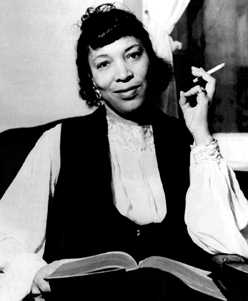

"Good Country People" and "The Swimmer are, I thought, two interesting stories that were interesting to read.
Both seemed to be in the stream of conscious style of writing if I'm using the right term. Also, they both have narration forms: the observer telling the story.
In "The Swimmer" by John Cheever, is a story bring told from the viewpoint of the main character, Neddy Merrill. He is absorbed in his surroundings and how they affect and make him feel. There is no story diversion outside of Neddy's own thoughts. We don't really find out much about Neddy's background until late into the story and even then it isn't much. He is a mysterious figure. The whole idea of the "Lucinda River" was interesting and fun. At first, I didn't realize that he was swimming through the different pools of his socialite friends and when I did, it threw me for a loop a little bit, but a good loop no less! The actual flow of the story though, was as if it was a river; there is always a state of movement. Whether it is Neddy swimming through the pools, going from house to house or even how he avoids the people who are supposed to be his friends. It is a journey he must follow and he makes himself finish, as you can see towards the end when he can't pull himself out of the pools anymore and had to use the latter. In the beginning of the story, he mentioned how he never uses the latter because basically it was beneath him: he was a superior male in all forms. By the end, he realizes he is just a human like the other people who use latters. Through how he describes his "friends" and the types of relationships he has with them, he seems to be playing the role of a upper middle class family and neighborhood. He seems very separated from the rest of them and at times almost in a trance, bieng caught up in his mission. He doesn't even acknowledge Mrs. Hammer when swims through her pool. This story is a fast paced and if one doesn't follow the flow, you could be left behind in the story.
In "Good Country People" by Flannery O'Connor, the flow of this story is quite different from "the Swimmer." There is multiple characters' thoughts represented and switching between them occurs often, usually shown through the start of a new paragraph. It was three stories rolled into one : Mrs. Freeman, Mrs. Hopewell, and Joy/Hulga. At times, this was confusing, especially the exchanges about Mrs. Freeman and Mrs. Hopewell because the thoughts of each other were mixed with their descriptions. There is no flow to the story as a whole, only each individual stories have their own distinct flow. Their personalities are also described a lot better than in "The Swimmer" allowing the transition from person to person easier to follow I thought.
The end both stories ended made me unsatisfied and left me wanting more story because there was no resolution. Especially in "The Swimmer" when he basically can't tell what is happening or happened in his life. One of my favorite lines from the story is "Was his memory failing or had he so disciplined it in the repression of unpleasant facts that he had damaged his sense of the truth?" (2046) and I just had to mention that because- it's a fantastic line and hoped other people thought so as well.
These are both really good stories, I like "The Swimmer" more personally and could write a lot more about it but that's off topic. :-)








